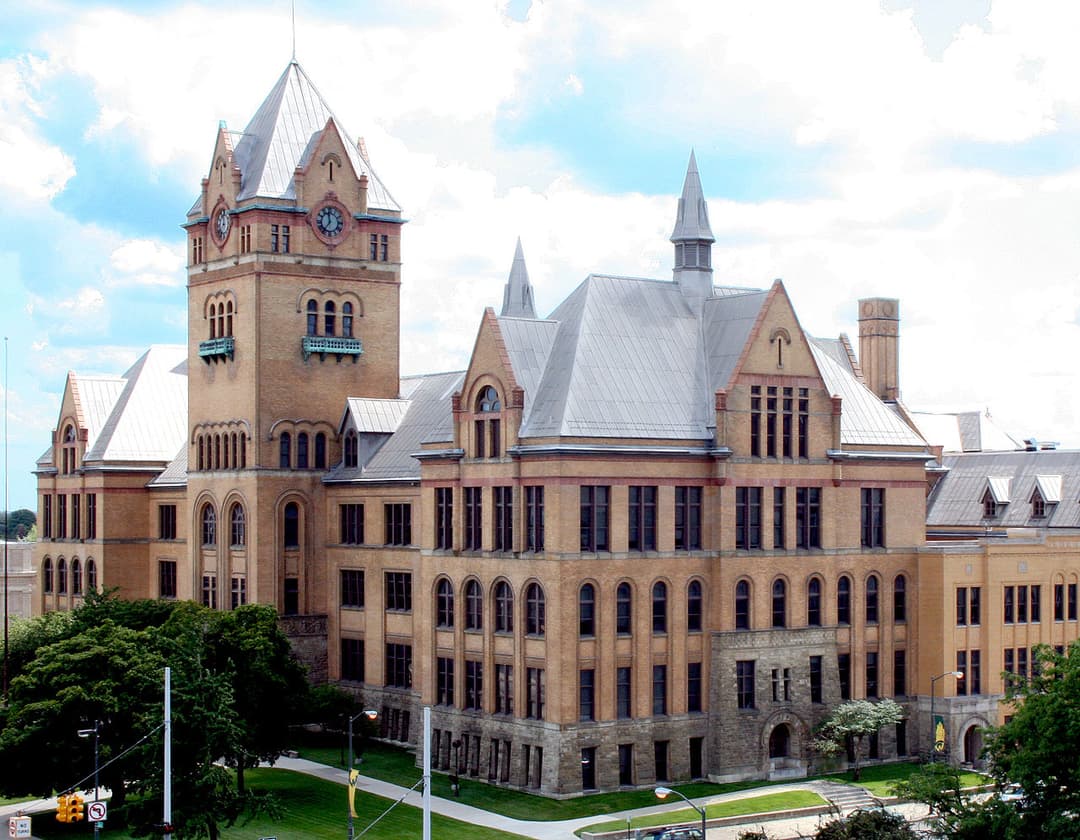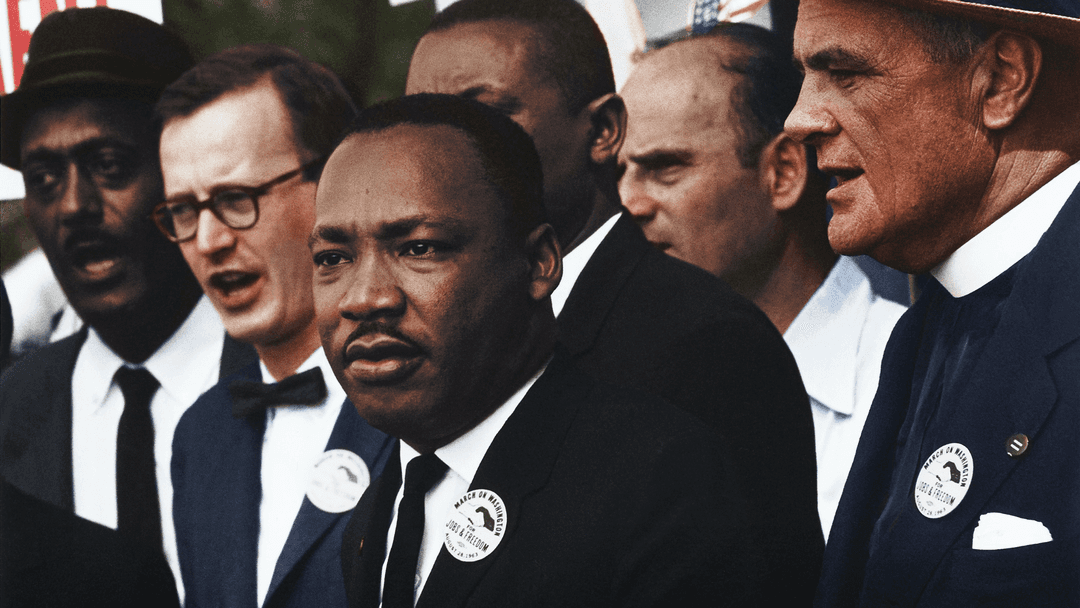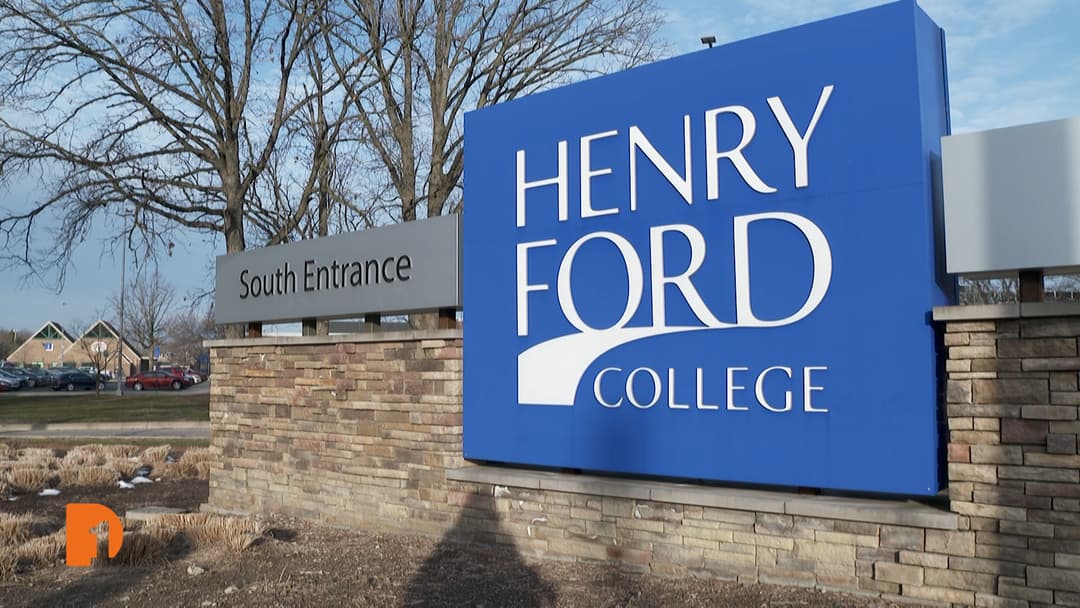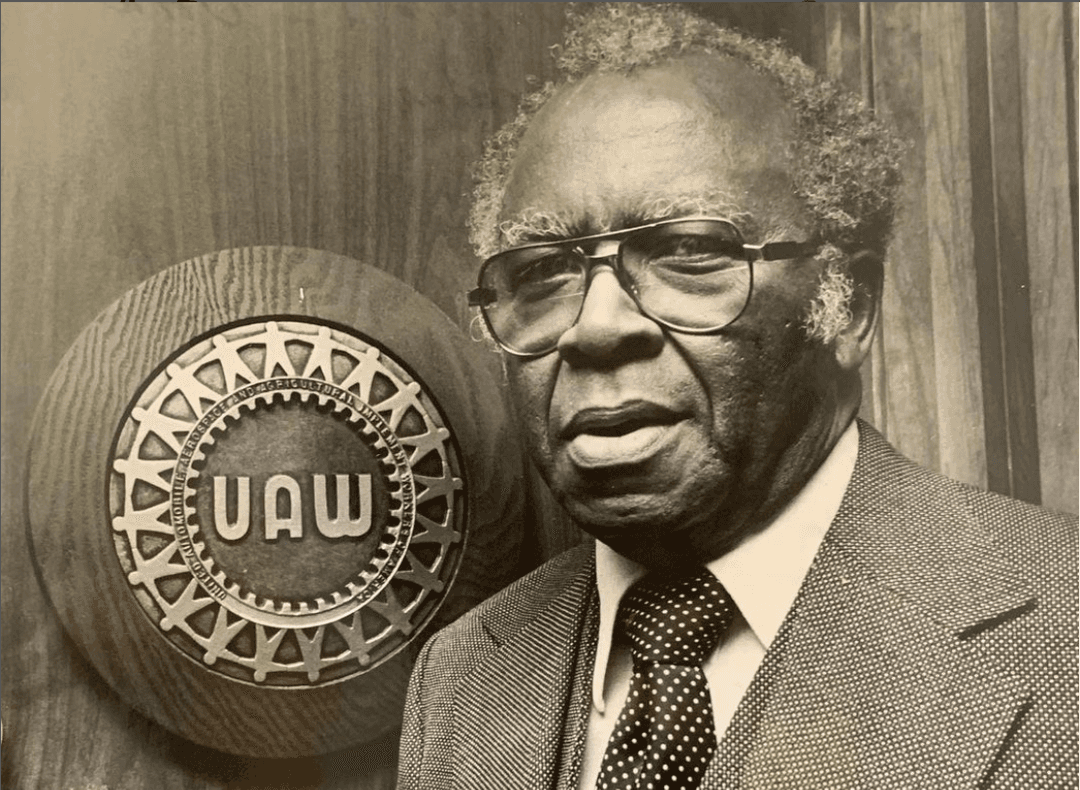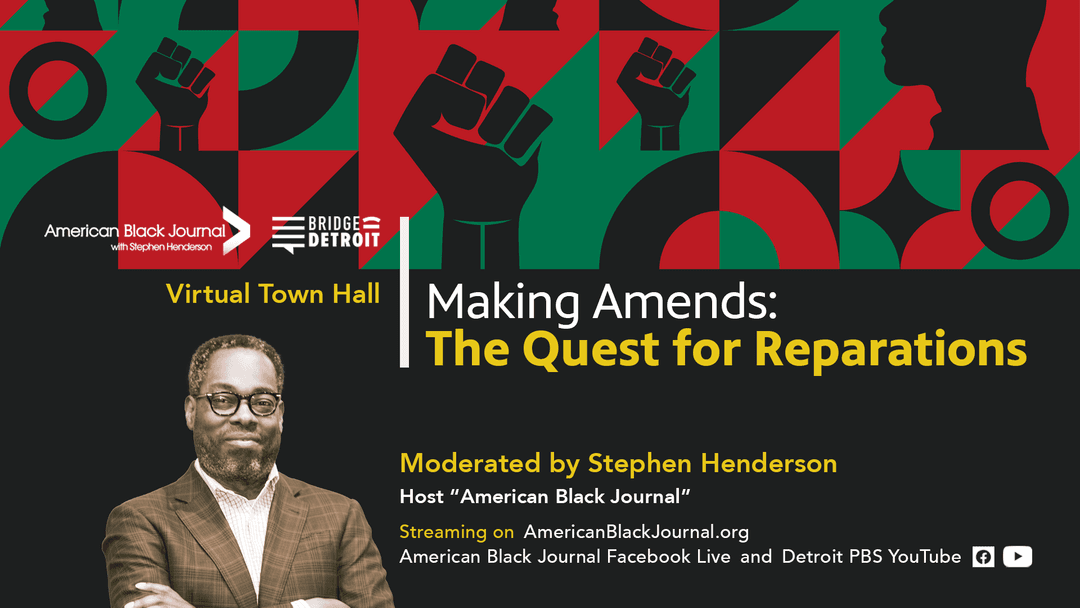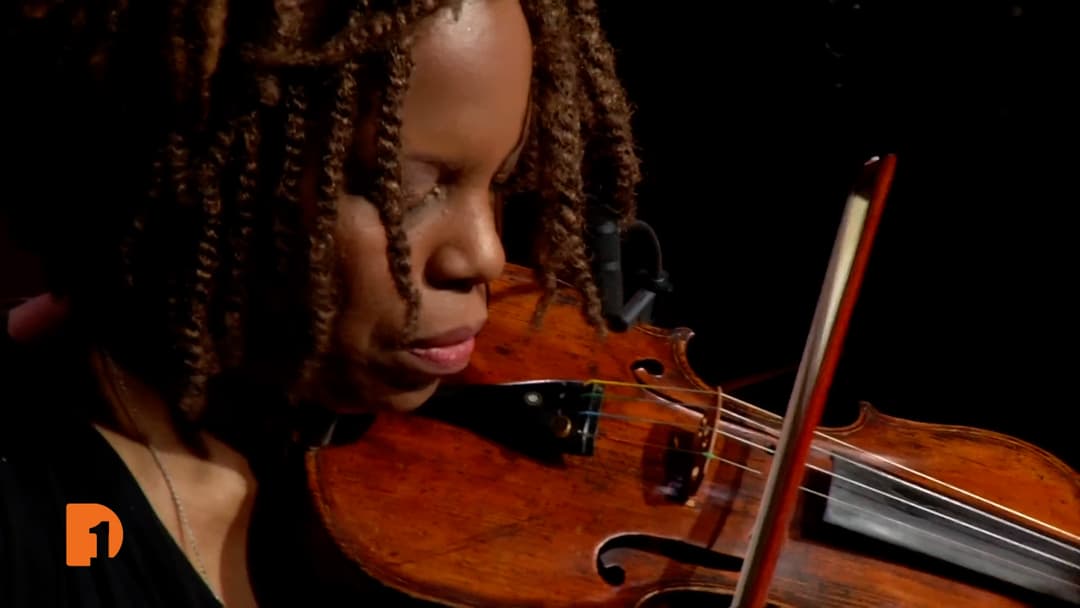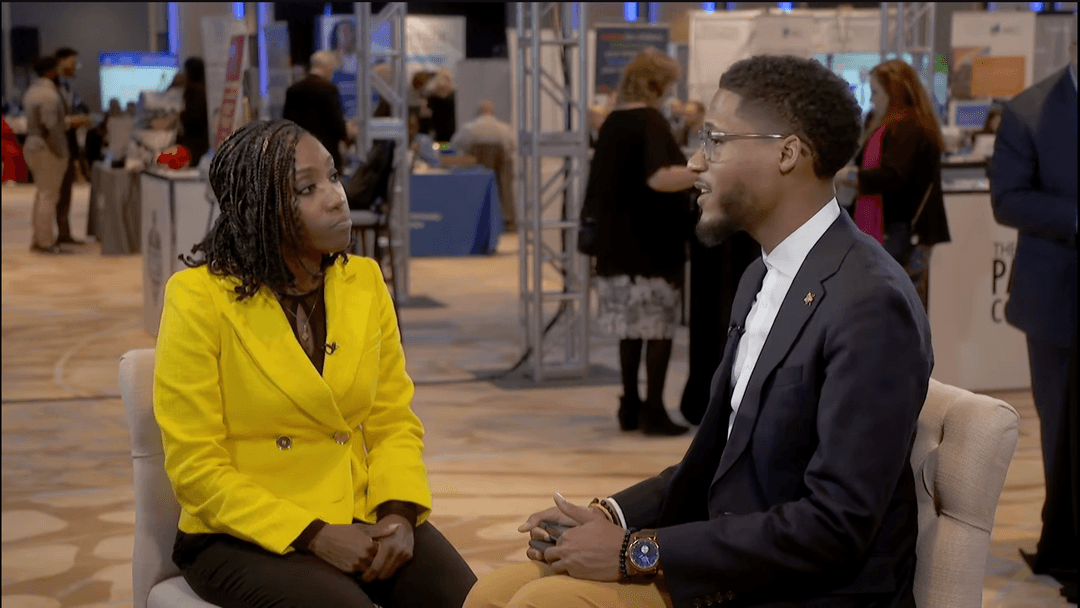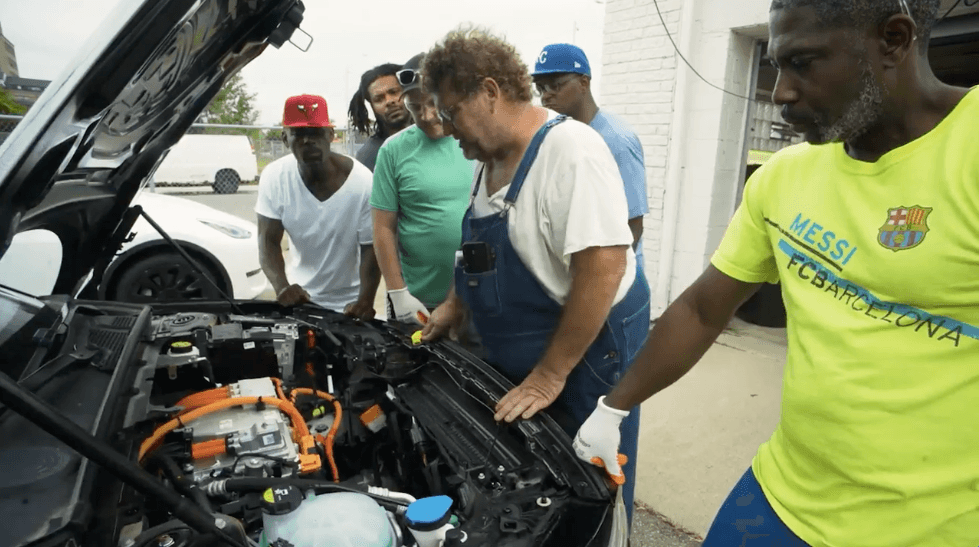Wayne State receives $6 million grant to fund Detroit Center for Black Studies, hire 30 new faculty positions
Jan 18, 2023
Wayne State University has received a new $6 million grant from the Mellon Foundation to further invest in studies about the Black experience. The grant funding is being used to hire 30 new humanities faculty whose interests and research focus on the Black experience as well as create the Detroit Center for Black Studies.
The faculty will focus on exploring the issues that affect the Black experience — race, racism, inequality, creating more inclusive criteria for students, and engaging in service with the Black community. The goal for the Detroit Center for Black Studies is to bring together Michigan’s Black studies scholars from multiple disciplines to discuss their work. The grant funds help advance Wayne State’s efforts to create a more inclusive and equitable university.
Wayne State University President Dr. M. Roy Wilson joins “American Black Journal” host Stephen Henderson to share all the details of this unprecedented funding opportunity. They talk about the importance of expanding Black studies in Detroit, where nearly 80% of the population is African American, and the impact the funding will have on promoting diversity and inclusion within the university.
Full Transcript:
Stephen Henderson, Host, American Black Journal: Dr. Wilson, welcome back to American Black Journal.
Dr. M. Roy Wilson, President, Wayne State University: Oh, good to be here.
Stephen Henderson: So this is a really exciting development at Wayne State University. And one of the things I think is really exciting about it is that it seems to recognize the importance of Detroit and Detroit’s Black history in an economic context. Or in an academic context, I should say. Tell me about this grant from Mellon and how it will change Wayne State.
Dr. M. Roy Wilson: Yeah. So there’s two parts to the grant. The first part is and by the way, in terms of background, it’s a $6 million grant from the Mellon Foundation, one of the largest grants that they’ve given. So there’s two parts of the grant. The first part is recruitment of 30 scholars, faculty members, full-time faculty members who are interested in studying Black culture, African-American history, anything related to the African diaspora.
So that’s one part of it. And on that part, it’ll be 30 faculty and different stages of development. There’ll be ten who are tenured faculty who will recoup from other institutions. They already have proven themselves. They’re typically full professors and they’re seasoned investigators. Another ten would be tenure track. So they’re on the way to becoming tenured, but they’re a little less seasoned in their in their career.
And then a third are those who had just finished their postdoc or their doctor training and are either in postdocs or early stages of their career. And we want to nurture them so they become good faculty members. So 30, then the second part of the grant is, is something that I think is really, really exciting, and that’s the Detroit Center for Black Studies, I think is the name of it.
Detroit Center for Black Studies. And this will be not just Wayne State, it would be centered here at Wayne State, centered in Detroit. But it will be a research institute, basically, for to bring people, scholars from throughout Michigan universities to be able to do research to on the African diaspora, as I mentioned, to do community outreach activities. Do other activities that connect with the Black experience.
Stephen Henderson: And I know that this is the timing of this is somewhat about the funding and the availability of the funding, but it comes at an important time for the university, and it will have an effect across a broad spectrum of the university. I think one of the things that sometimes is presumed about things like this is that it’s just in an African studies department. This is something that affects all of Wayne State.
Dr. M. Roy Wilson: Right. This is going to be our faculty well we’re going to be recruiting faculty throughout the humanities at Wayne State. So in all departments basically throughout the humanities departments anyway. And so they’ll come from different perspectives. You know, some of them will be in the African-American studies department, many of them will not.
But the thing that they will all have in common is that their area of scholarship will be in that area. Which brings up another point. They don’t necessarily have to be African-American. There are scholars who are not African-American who are still interested in that scholarship. And so these will all be people who are interested in that scholarship, which I think is really important that it’s centered here in Detroit, because Detroit does have a population of African-Americans that’s about 80%, which I think is larger than any other city in the country.
And so and we’re seeing it here in Detroit. We’ve been here for 153 years. We have a history of promoting diversity and history of bringing in immigrants from all over the region who have been disenfranchised. And so we kind of have that social justice bent anyway. And so to marry that with the funding that allows for us to really scale this in a way that we just would not have been able to do without the funding. You know, I mean, most universities, most of time were recruiting, you know, two or three faculty for specific areas, it’s a unprecedented to recruit 30 for a specific area.
Stephen Henderson: Yeah. Talk a little about how the Center for Detroit Center for Black Studies will also connect with the community here in Detroit. As you say, it will connect with other universities, but it’s also important that that’s here in our city.
Dr. M. Roy Wilson: Yeah, I think so. I mean, as I mentioned, Detroit is 80% African-American. So I’m happy that that will be here. Scholars from throughout Michigan, particularly University of Michigan, Michigan State and the three campuses, the University of Michigan, Michigan State, Oakland University, various community colleges will all be able to participate and it’ll be a central place for that type of scholarship to be able to be supported and nurtured.
Along with the scholarship, as I mentioned, it will be, you know, certain activities, whether it’s community events, activities related to training, activity related to educating the wider Detroit community about issues of African-American culture that will be a centerpiece for that.
Stephen Henderson: What’s the timetable for all of us? How soon will people be able to notice this difference at Wayne?
Dr. M. Roy Wilson: Well, we’re going to start the recruitment process right away. But this is a project that we think would take four or five years before we have all the recruitment and before everything is set up the way we want it to be set up.
Stephen Henderson: Yeah. And the other significant thing about the timing, of course, is that this is your last year as president at the university and you’re going to go off and have a sabbatical and then do some other things. But talk about this as part of the legacy of your leadership at Wayne State.
Dr. M. Roy Wilson: Well, as I mentioned, and you know, when I wrote the few words about my not renewing my contract, I mentioned that Wayne State gave me my voice. And what I meant by that is that I care deeply about issues of diversity and inclusion. And Wayne State is unapologetic about that.
And one of the last things that we did over the last couple of years, is, really look at social justice in a systemic sense and throughout the university to see what we could do better in terms of social justice, in terms of increasing diversity, in terms of really being a more inclusive society.
And I think this would be this ability to scale this African-American and African diaspora studies as an output of that effort, that social justice effort that we put in is it’s kind of like a capstone, I think, to something that we care deeply about as an institution and that I care deeply about as an individual. But to be able to actually do something and hopefully have it be a transformative initiative for the institution and for Detroit.
Stay Connected:
Subscribe to Detroit PBS YouTube Channel & Don’t miss American Black Journal on Tuesday at 7:30 p.m and Sunday at 9:30 a.m. on Detroit PBS, WTVS-Channel 56.
Catch the daily conversations on our website, Facebook, Twitter and Instagram @amblackjournal.
View Past Episodes >
Watch American Black Journal on Tuesday at 7:30 p.m. and Sunday at 9:30 a.m. on Detroit Public TV, WTVS-Channel 56.
Stay Connected
Subscribe to Detroit PBS YouTube Channel & Don’t miss American Black Journal on Tuesday at 7:30 p.m. and Sunday at 9:30 a.m. on Detroit PBS, WTVS-Channel 56.
Catch the daily conversations on our website, Facebook, Twitter, and Instagram @amblackjournal.
Related Posts
Leave a Reply
Your email address will not be published. Required fields are marked*






